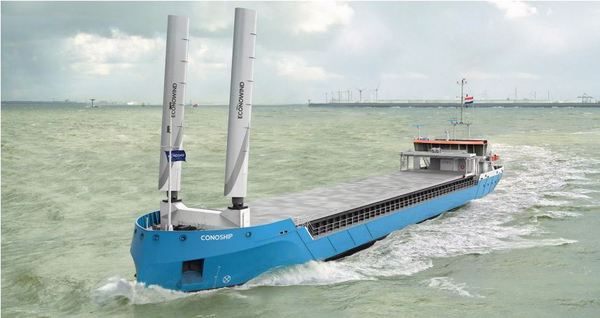Conoship introduces hybrid diesel-electric inland cargo vessel
Dutch shipmaker Conoship International Projects (CIP) says the 3,600 DWT is ready for wind assisted propulsion and its design allows use of hydrogen or ammonia fuel in the future.
 PHOTO: The cargo carrier, the first in a series of six such vessels, will have wing-shaped elements that assist in propulsion. Conoship International Projects
PHOTO: The cargo carrier, the first in a series of six such vessels, will have wing-shaped elements that assist in propulsion. Conoship International Projects
The cargo carrier, the first in a series of six such vessels, will be constructed this year at Fosen Yard Emden, Germany. The remaining vessels may be delivered by 2023.
The vessel can be equipped with two Econowind VentiFoils for wind propulsion which can cut fuel consumption as well as carbon dioxide by 10% based on the sailing route, says CIP. Ventifoils are wing-shaped elements that assist in ship propulsion.
This is the latest initiative to decarbonise inland cargo shipping in northern Europe.
In December, gas provider Air Liquide signed an agreement to provide carbon-free hydrogen to Future Proof Shipping’s (FPS) inland container ship FPS Maas which plies between the Netherlands and Belgium.
In September last year, Dutch clean shipping consortium Zero Emission Services’ (ZES) inland vessel Alphenaar started transporting beer for Heineken between Alphen aan den Rijn and Moerdijk in the Netherlands while being powered by interchangeable batteries.






